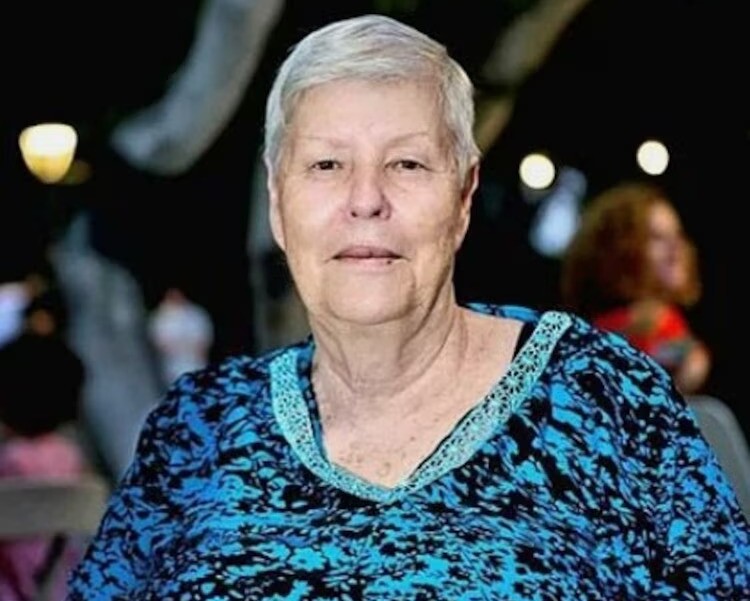Hanna Katzir, an Israeli woman who endured 49 days of captivity in Gaza, has tragically passed away at the age of 78. Katzir’s release from captivity in 2023 marked the end of a harrowing ordeal that began on October 7, 2023, when Hamas launched a surprise terror attack on Israel, plunging the country into crisis. During that attack, Katzir was kidnapped from her home in Kibbutz Nir Oz, a small community near the Gaza border. Her husband, Rami, was tragically killed in their safe room during the assault, leaving Katzir to endure not only the trauma of her abduction but the devastating loss of her spouse.
Katzir’s abduction and subsequent 49 days in captivity were part of a broader wave of hostages taken by Hamas during the attack. The survivors of this ordeal, including Katzir, became symbols of resilience and hope as they were eventually released, but Katzir’s recovery was fraught with physical and emotional challenges.
After her release, Katzir struggled with a complex medical condition that lasted for several months. Although she received medical treatment, her health deteriorated, and the toll of her traumatic experience remained with her. The statement from Kibbutz Nir Oz, where Katzir had lived, expressed deep sorrow over her passing, remembering her as a courageous woman who had endured unimaginable hardship.
The physical and emotional scars from her captivity were significant. The trauma Katzir experienced—losing her husband and spending nearly two months in captivity—left her grappling with both visible and invisible wounds. While many survivors of hostage situations struggle to recover fully, Katzir’s persistence in her efforts to heal inspired those around her. Sadly, after months of battling her health issues, Katzir passed away, leaving behind a legacy of strength and resilience.
The October 7 attack was a day that reshaped the lives of countless Israeli families. Katzir’s abduction, alongside the death of her husband, was a deeply personal tragedy, yet it was one part of a broader national catastrophe. In a conflict where so many lives were lost and families were torn apart, Katzir’s survival became a beacon of hope for others. Her return from captivity was a moment of relief for her family, but it was only the beginning of the long journey toward recovery.
Katzir’s struggle after her release is not uncommon among hostage survivors. Psychological and physical effects from such traumatic events often persist long after freedom is regained. Survivors must contend with the emotional toll of captivity—feelings of loss, fear, and helplessness—alongside the physical challenges of recovering from injury and stress. For Katzir, the battle for recovery was ongoing, and despite her strength, her condition ultimately took a toll on her body.
During her recovery, Katzir’s community rallied around her. The people of Kibbutz Nir Oz, who had witnessed her suffering, did what they could to provide support, offering comfort and solidarity as Katzir faced the challenge of healing from her experiences. As her health declined, the community continued to offer their support, recognizing the significance of her resilience in the face of such trauma.
The news of Katzir’s passing has sent waves of grief throughout Israel, particularly in Kibbutz Nir Oz, where she had lived for many years. The kibbutz, a close-knit community that has always been known for its spirit of cooperation and resilience, mourns the loss of one of its own. Katzir’s death is a reminder of the lasting effects of terrorism on the individuals and families involved. The impact of such violence is not only felt immediately but also lingers long after the headlines fade.
Hanna Katzir’s story is one of immense suffering but also of extraordinary perseverance. While her health issues after her release were difficult to bear, she fought hard to recover, reflecting the strength that had carried her through the darkest days of her captivity. Her journey serves as a testament to the resilience of those who endure unimaginable hardships, and her death is a sad reminder of the toll that terrorism takes on those who survive.
For those who knew Katzir and for the people of Israel, her life will continue to be remembered as a symbol of the enduring human spirit. The circumstances of her death—though tragic—highlight the broader pain and suffering experienced by many hostages and their families in the wake of violent conflict. Katzir’s story is not just about survival; it is about the importance of community, the power of human resilience, and the long path to healing that many survivors must walk.
Katzir’s passing is a poignant moment for her family, friends, and fellow citizens, especially as Israel continues to cope with the aftermath of the October 7 attack. While her death represents a loss, it also serves as a reminder of the importance of remembering those who suffer in silence and the need to honor their strength in the face of unimaginable challenges.
As the community mourns, it is clear that Hanna Katzir’s legacy will live on. Her survival, her courage, and her fight to heal after being held captive will inspire future generations to remember the human cost of conflict and the strength that can emerge from the darkest moments. In her death, as in her life, Katzir’s story is one of profound loss, but also of hope, endurance, and the unwavering determination to survive.
